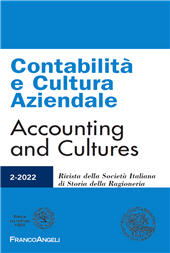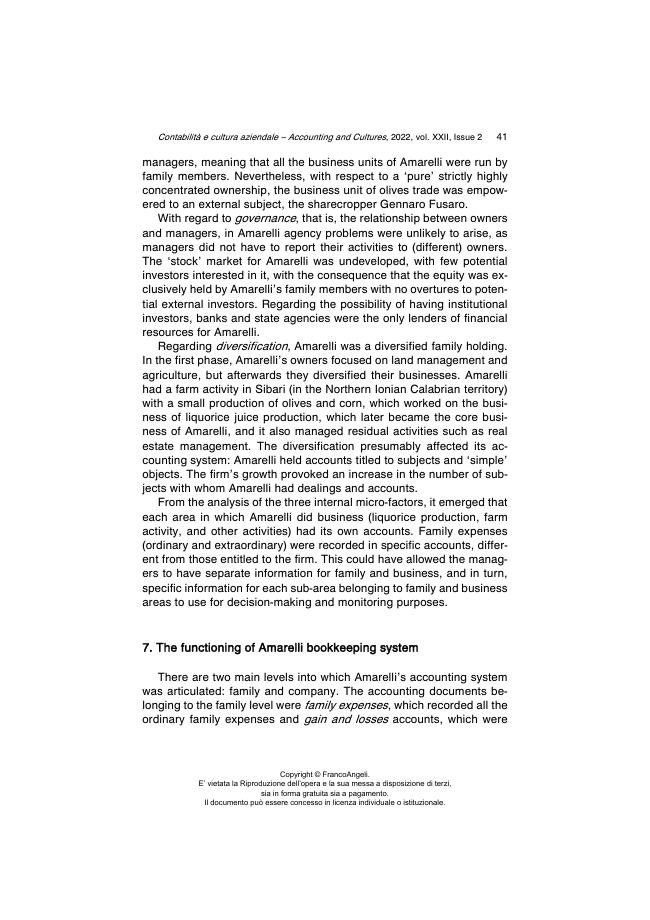The usefulness of accounting information for decision-making purposes in an Italian company from the late nineteenth to the early twentieth century
29-52 p.
Introduction: Accounting history research on cost accounting theory and practice is still at an early stage in Italy for two main reasons. The first relates to the importance that the doubleentry bookkeeping technique assumes in Italy, characterised by a typical financial focus, and the second to the delay with which Italy entered the industrialisation process. Aim: The main aim of this study is to investigate the bookkeeping accounting systems of an established, southern Italian family and longlived firm, namely Amarelli, still operating in the liquorice industry, from the late nineteenth to the early twentieth century to unveil whether accounting information was used by Amarelli managers for control and decisionmaking purposes. Methodological approach: We used document analysis of the reports related to the Amarelli bookkeeping system and semistructured interviews with one of the presentday owners.
Main findings: The findings highlight that the different reports in which Amarelli's book keeping system was articulated, and specifically the reports related to Amarelli's industrial activity, can be regarded as a response to the necessity to calculate and control the âÂcost' of the different 'processes' as well as the specific 'performance' of any single activity of Amarelli, together with the overall âÂperformance' of the Amarelli factory. Originality: To the best of our knowledge, this is the first study that investigates the accounting systems used by a food industry firm in southern Italy, an underdeveloped territorial area, from an industrialised point of view during 18751925. [Publisher's text].
Fa parte di
Contabilità e cultura aziendale : rivista della Società Italiana di Storia della Ragioneria : XXII, 2, 2022-
Articoli dello stesso fascicolo (disponibili singolarmente)
-
Informazioni
Codice DOI: 10.3280/CCA2022-002003
ISSN: 2283-7337
MATERIE
PAROLE CHIAVE
- accounting information, decision usefulness, monitoring, decisionmaking purposes, southern Italy, food industry, case study, liquorice juice, macro and microfactors



